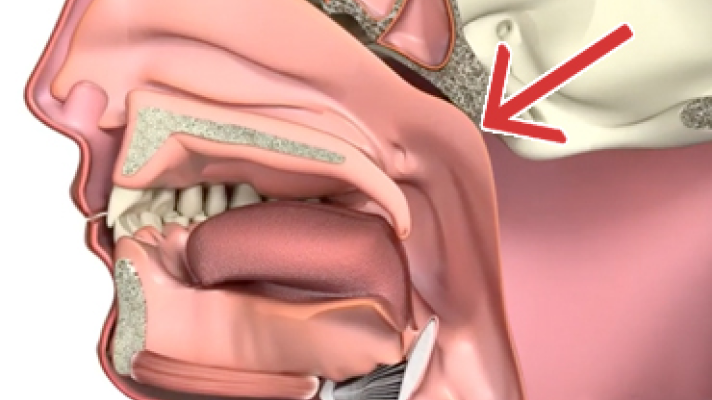What Is Nasopharyngeal Cancer?
Nasopharyngeal cancer begins in the upper part of the throat behind the nose. It’s relatively rare but can be quite aggressive, with symptoms like a persistent sore throat, nosebleeds, ear fullness, or neck lumps. Ayurveda connects the nasopharynx and throat region with the Udana Vata and Kapha dosha, both of which play a role in respiration, speech, and immune defense. When these doshas are aggravated, they can lead to chronic inflammation or even malignancy. Herbs like Tulsi, Haridra (Turmeric), and Yashtimadhu (Licorice), along with practices like Nasya (nasal therapy), help clear obstructions and support immune health. Ayurvedic nasopharyngeal cancer revolves around the use of herbal medicine for nasopharyngeal cancer and other techniques.
Book Consultation
What Are The Causes Of Nasopharyngeal Cancer?
The causes of nasopharyngeal cancer are not very clear. Based on observations and research works, the following information is available to the world:
- Nasopharyngeal cancer has been linked with the EBV - Epstein-Barr virus. The connection between the two is not evident yet but it probably is involved with the modifications in the DNA. The virus may affect the DNA of the cells of the nasopharynx. This modification leads to the abnormal growth of the cell.
- The chances of developing nasopharyngeal cancer are also increased when the food is rich in items like meat and salt-cured fish. Consumption of alcohol and tobacco too leads to an increased risk of tumour cells. Working around chemicals like formaldehyde and wood dust may also cause NPC.
- If an individual has a family history of the disease, there is a probability that the person may get infected with the same. Since heredity plays a major role, it is important for the doctors as well to get both the medical and family history of the patient. Specific genes linked to the same could also be the reason for its development.
Types of Nasopharyngeal Cancer
The growth of cancer cells in the nasopharynx can either be benign or malignant. The non-cancerous or benign tumours can be found in young adults and children and are quite rare. Angiofibromas and haemangiomas, two small blood vessels, undergo growth in this type of cancer. The benign tumours of minor salivary glands can also be found in the nasopharynx.
Among malignant nasopharyngeal tumours, these are some of the major types:
- Keratinising Squamous Cell Carcinoma
The squamous cells are found in the lining of the nose, mouth, throat, and larynx. The presence of keratin in the cancer cells defines this type of cancer.
- Non-keratinizing squamous cell carcinoma
This is the most commonly occurring form of nasopharynx cancer in the body. There is an absence of keratin in the cancer cells.
- Basaloid squamous cell cancer
It is a rare type of cancer and an aggressive variant for sure. Most of them may be caused due to long-term exposure to UV rays.
Stages of Nasopharyngeal Cancer
Once the doctor has confirmed that the patient is suffering from nasopharyngeal cancer through diagnosis, he or she determines the level of complexity. This is termed staging.
- Stage 0
This is called carcinoma in situ which means that it is the area of origin of the abnormal cell division.
- Stage 1
This is basically the early stage or primary stage where the infection has not spread to the surrounding parts.
- Stage 2
At stage 2, the cancer cells may have just begun to start spreading in areas like lymph nodes. However, the distant body parts remain unaffected.
- Stages 3 and 4
- These are the advanced stages where the cancer cells spread through the lymphatic system to distant parts as well as the surrounding tissues.
- If nasopharyngeal cancer returns even after the treatment, the condition is termed recurrent cancer.
Signs and Symptoms of Nasopharyngeal Cancer
In case you are experiencing following signs and symptoms then you should visit an experienced ayurvedic cancer doctor near you.
- The patient might have formed a lump in the neck that the specialist can determine on physical examination.
- Issues like blurred vision, face pain, numbness, and headache can be observed.
- A feeling of ringing or fullness in the ear, or hearing loss can be witnessed in several cases.
- Nose Bleeding, ear infections, sore throat, and stuffy nose also occur in patients suffering from nasopharyngeal cancer.

What are the Complications of Nasopharyngeal Cancer?
Untreated tonsillar cancer will result in gradual growth and invasion of local structures. Invasion of the lateral pterygoid muscle, pterygoid plates, lateral nasopharynx, skull base and encasement around the carotid is suggestive of unresectable T4b disease in p16 negative cancers. Therefore, proper precautionary measures must be taken to ensure good oral health.
How Ayurveda Diagnoses and Treats Nasopharyngeal Cancer?
A severe Pitta-Kapha imbalance in the Urdhva Jatrukta (head and neck region), Nasopharyngeal cancer that grows in the upper throat behind the nose, is commonly associated with in Ayurveda. These doshas can get aggravated by long-term exposure to an irritant, toxin, or even suppressed emotions, causing inflammation, congestion, and eventually tissue damage. An assessment in Ayurveda looks at breathing, smell, sinus health, digestion, and stress load.
Herbal treatment for nasopharyngeal cancer involves clearing the area and restoring harmony. Nasya (nasal oil therapy) is a go-to treatment; medicated oils like Anu Taila or Shadbindu oil are applied through the nostrils to cleanse the nasal passages and sinuses. Internally, herbs like Tulsi, Pippali, Trikatu, and Turmeric are used to clear mucus, reduce inflammation, and stimulate healing. The diet avoids dairy, cold foods, and anything that can clog sinuses—instead, warm broths, herbal teas, and spicy soups are recommended. Breathwork (especially alternate nostril breathing) and meditation are brought in to help reduce emotional congestion. Ayurveda doesn’t look at this cancer as just a disease of the nose; it’s a message that something deeper needs clearing, physically and energetically.
Why Choose Karma Ayurveda?
Karma Ayurveda focuses on restorative ayurveda tonsil cancer treatment that includes yoga and meditation to help recover energy and rejuvenate the body. Ayurvedic cancer specialists comprehend the composition of the body and work on the root causes of stress and disease. These treatments contribute to a higher quality of life. Healing treatments improve the immune system and reduce the risk of infection in any way.
Our Ayurvedacharyas deliver the best treatments with years of experience and a high level of professionalism. We give you high-quality results and effective therapies that improve your general health and alleviate the symptoms of connected ailments. Karma Ayurveda provides entirely ayurvedic and expertly monitored treatments.
Conclusion:
Healing from nasopharyngeal cancer is about reclaiming your breath, literally and metaphorically. Ayurveda nurtures this healing with therapies that open up blocked channels, reduce inflammation, and promote clarity in both body and mind. With its gentle, supportive rituals, Ayurveda offers a path back to comfort and calm. It complements mainstream care with time-tested wisdom and natural strength, helping you feel grounded, even when the path ahead is uncertain.


